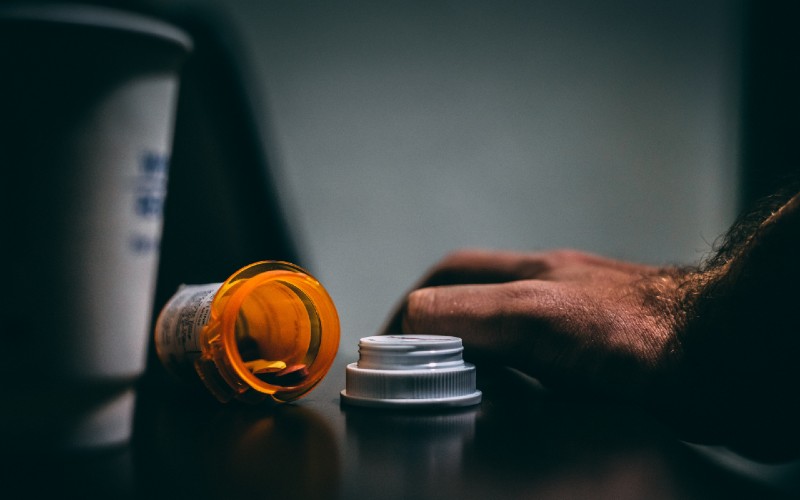One of the biggest public health threats facing the global community today is opioid-related health issues, which can lead to death.
Opioids are highly addictive substances, and since their use is widely encouraged by many members of the international medical community, addiction is rampant across the globe.
The United States is particularly engulfed in an opioid epidemic, however, the problem exists all over the planet.
Pharmaceutical companies have used deceptive marketing tactics in order to sell their goods. Patients often do not know they are hooked until it is too late.
Fortunately, the cannabis plant is far safer and in many cases more effective than opioids.
Canadian Study Finds Encouraging Results
A team of researchers in Canada explored the short and long-term impacts of daily medical cannabis use among 751 chronic pain subjects.
The study looked specifically at medical cannabis use’s impact on opioid use rates, perceived quality of life, and the managing of chronic pain symptoms.
Participants in the study consumed medical cannabis on a daily basis for 12 months in a row. Three-fifths of the study participants stated that they had no prior experience with medical cannabis leading up to the clinical trial.
At the conclusion of the study researchers determined that (below are direct quotes from the study’s list of findings):
- Medical cannabis treatment was associated with improvements in pain severity and interference (P < 0.001) observed at one month and maintained over the 12-month observation period.
- Significant improvements were also observed in the SF-12 physical and mental health domains (P < 0.002) starting at three months.
- Significant decreases in headaches, fatigue, anxiety, and nausea were observed after initiation of treatment (P ≤ 0.002).
- In patients who reported opioid medication use at baseline, there were significant reductions in oral morphine equivalent doses (P < 0.0001), while correlates of pain were significantly improved by the end of the study observation period.
“Taken together, the results of this study add to the cumulative evidence in support of plant-based MC (medical cannabis) as a safe and effective treatment option and potential opioid substitute or augmentation therapy for the management of chronic pain symptomatology and quality of life,” the study’s authors concluded.
Study Builds On Previous Studies
This study is one of a growing list of other studies that have arrived at the same conclusions. Below is just a sampling of other studies:
“Many pain patients substituted prescription medications with cannabis (41.2–59.5%), most commonly opiates/opioids (40.5–72.8%).” – Baron, Lucas, Eades, Hogue (2018)
“Medical cannabis laws produce a statistically significant decrease in opioid prescription rates.” – Biles (2018)
“The treatment of chronic pain with medicinal cannabis in this open-label, prospective cohort resulted in improved pain and functional outcomes, and a significant reduction in opioid use.” – Haroutounian S, Ratz Y, Ginosar Y, Furmanov K, Saifi F, Meidan R, Davidson E. (2016)
“Cannabis use may decrease the use of other prescription medicines, including opioids.” – Abuhasira, Schleider, Mechoulam, Novack (2018)
“By the end of the 21 month observation period, MCP enrollment was associated with 17.27 higher age- and gender-adjusted odds of ceasing opioid prescriptions (CI 1.89 to 157.36, p = 0.012), 5.12 higher odds of reducing daily prescription opioid dosages (CI 1.56 to 16.88, p = 0.007), and a 47 percentage point reduction in daily opioid dosages relative to a mean change of positive 10.4 percentage points in the comparison group (CI -90.68 to -3.59, p = 0.034). The monthly trend in opioid prescriptions over time was negative among MCP patients (-0.64mg IV morphine, CI -1.10 to -0.18, p = 0.008), but not statistically different from zero in the comparison group (0.18mg IV morphine, CI -0.02 to 0.39, p = 0.081). Survey responses indicated improvements in pain reduction, quality of life, social life, activity levels, and concentration, and few side effects from using cannabis one year after enrollment in the MCP (ps<0.001).” – Vigil, Stith, Adams, Reeve (2017)
“Among respondents that regularly used opioids, over three-quarters (76.7%) indicated that they reduced their use since they started medical cannabis.” – Piper BJ1,2,3, DeKeuster RM4,5, Beals ML6, Cobb CM4,7, Burchman CA8,9, Perkinson L10, Lynn ST10, Nichols SD11, Abess AT12 (2017)





